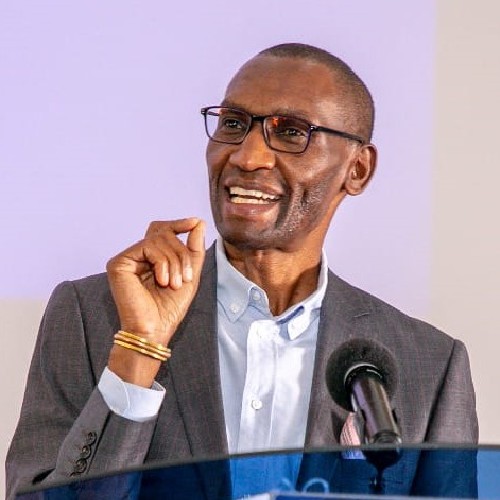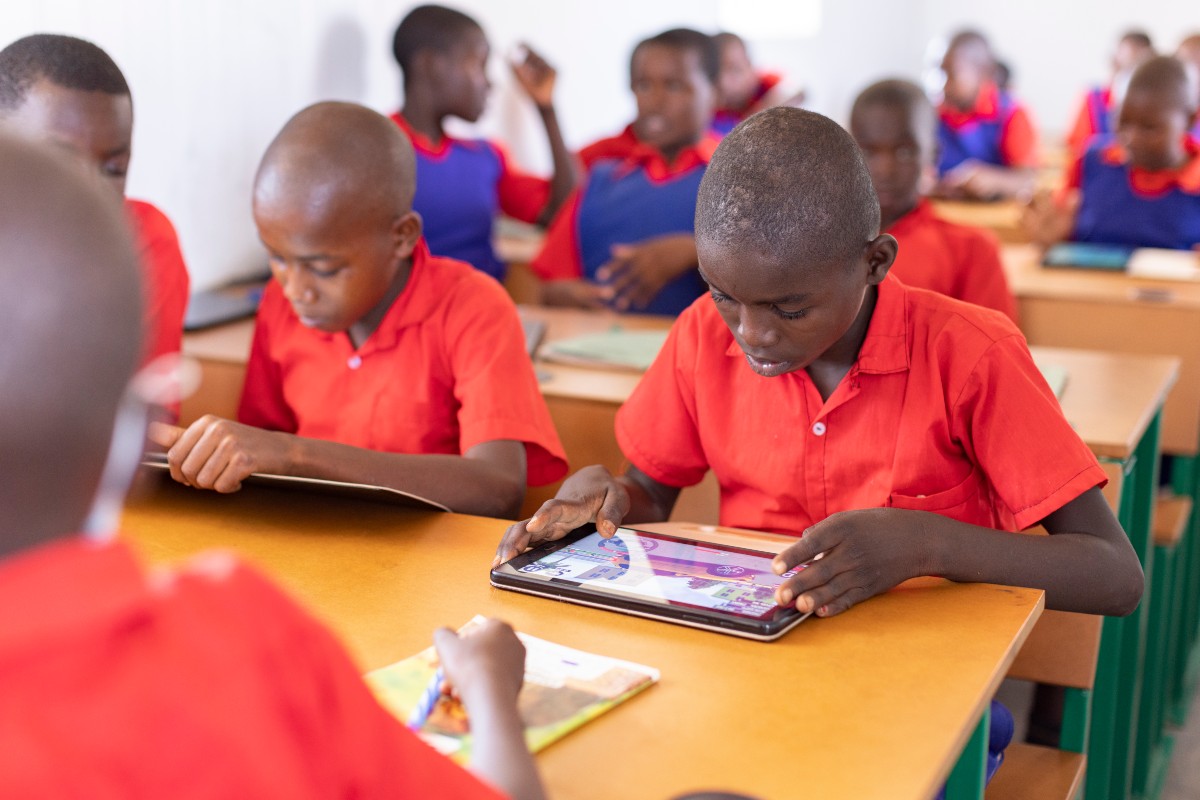
Chege Ngugi

High school student Patrick (L), attends a class on online safety in Mombasa, Kenya, as part of ChildFund’s Safe CLICS project.
Private sector should lead the fight against online predators
What you need to know:
- In an era dominated by technology, the responsibility of protecting children goes beyond the government, parents and guardians.
- As guardians of the digital realm, the private sector must be held accountable for protecting children online.
In recent years, Africa has witnessed a concerning rise in online child sexual exploitation cases, necessitating a collective effort by all stakeholders to safeguard children online.
A case in point is Kenya, where the 2021 Disrupting Harm report reveals that 67% of 12–17-year-old children are internet users. Despite this surge, increased internet penetration has not been matched by measures to adequately protect children online.
Additionally, findings from a 2023 Terre des Hommes Netherlands (TdH NL) Safety for Children and their Rights Online (SCROL) study revealed that about 38.8% of children reported that their parents do not understand the internet and social media applications’ functionalities. This knowledge gap impedes parents and caregivers from providing effective assistance in shielding their children from exposure and risks related to online child sexual exploitation.
In an era dominated by technology, the responsibility of preventing online child sexual exploitation and abuse extends beyond the Government and parents/guardians. It requires the technology service providers: the private sector, to take a leading and accountable role in promoting the safety of their platforms.
Tech companies, social media platforms, and online service providers provide virtual playgrounds for children, making it imperative for these entities to prioritize and invest in robust preventive measures to protect children from online risks ranging from intrusion to privacy, cyber-bullying, crimes like online grooming, sexting, sextortion, exposure to child sexual abuse materials, live streaming and child pornography. This is not meant to curtail their businesses but rather to make them child-friendly and responsive to their needs.
According to a 2023 report by ChildFund’s Safe Community Linkages for Internet Child Safety (CLICS) project, 42% of surveyed social service providers in Kenya have been engaged in activities to support survivors of online violence. Major social media tech companies have also employed several measures to prevent online child sexual exploitation. Meta, for example, is now developing technology and strengthening its task force of specialists dedicated to online safety to step up its fight against online predators that use Facebook and Instagram, which it owns, to exploit children. This comes amid reports the platform has enabled pedophile accounts and pushed inappropriate content sexualizing children. Similarly, TikTok has recently introduced the use of AI algorithms to detect and remove inappropriate content, and they encourage users to report any suspicious activities on the platform. While this is commendable, a lot of work needs to be done to combat this massive threat.
It is encouraging to see that child-focused organizations are at the forefront of ending online sexual exploitation of children. Terre des Hommes Netherlands and ChildFund are engaging the private sector to advocate for a change of approach and lobby for goodwill from them on child protection issues and prioritize children’s safety online. This includes working with internet service providers to establish settings that restrict access to sites that promote online sexual abuse such as pornographic sites. This is in addition to working with government institutions, schools, communities and families to help them effectively recognize and respond to cases of online child sexual abuse and exploitation.
As guardians of the digital realm, the private sector must be held accountable for protecting children online. Digital actors must prioritize the implementation of stringent measures which include robust age verification processes and content moderation systems. The private sector should establish solid foundations for providing children with safe and secure online spaces and digital solutions. They should operate with children’s best interests at heart, with a focus on the protection of innocent young users’ privacy and safety, and ensure the existence of an effective response system to address any violations.
Moreover, the private sector should promote the safe use of ICT by integrating child rights and safety considerations into all appropriate corporate policies and management processes. As premised in the United Nations Guiding Principles on Business and Human Rights, all businesses and industries should have appropriate policies and processes to enable respect for human rights, be it offline or online. Establishing effective mechanisms to enable the public to report abusive and exploitative content online is paramount. Industry players must collaborate with other actors to ensure adequate legal frameworks and implementation structures for the effective prosecution of online child sexual exploitation crimes and the protection of victims.
Mitigating gaps in collaboration among private sector entities, law enforcement, and child protection organizations, communities and children themselves requires information sharing, joint initiatives, and the establishment of task forces to collectively address online sexual exploitation and abuse of children. Private companies should work closely with law enforcement agencies to report and combat cases. This collaboration can involve sharing information, providing technical support, and ensuring swift responses to reported cases. Furthermore, private sector entities can also engage in educational campaigns to raise awareness of online child safety by providing resources and training for users, parents, and educators on how to identify and prevent such incidents.
As we commemorate Safer Internet Day, we urge the private sector to actively engage in these accountability interventions fostering a safer digital space for children, free from online sexual exploitation and abuse.
This op-ed was first published by the Daily Nation.




